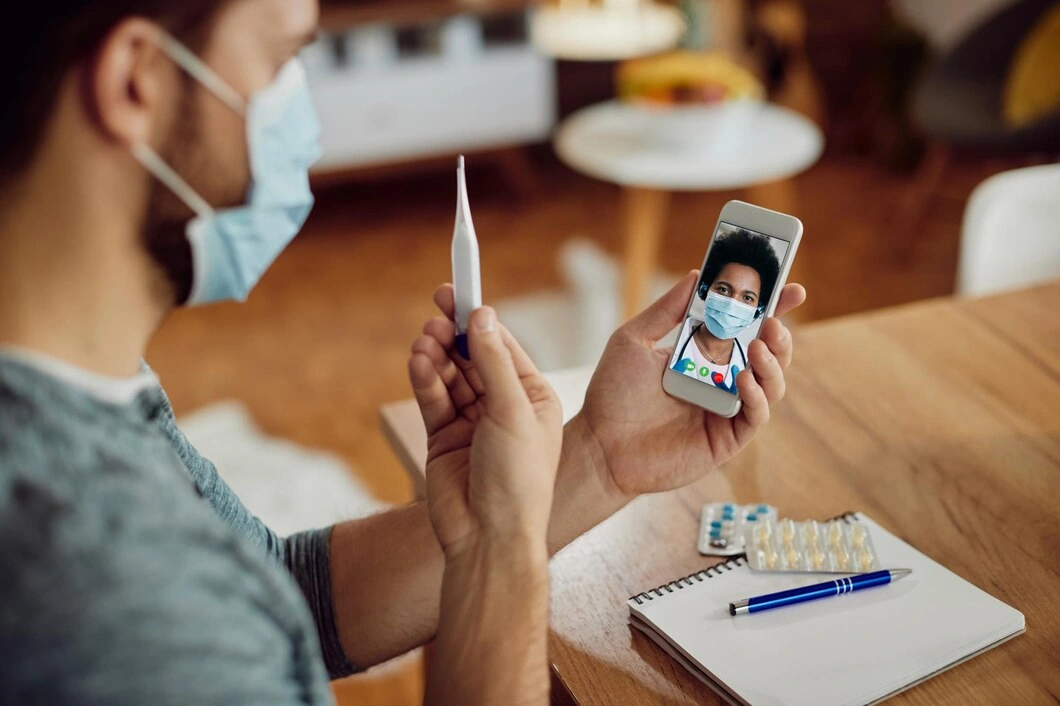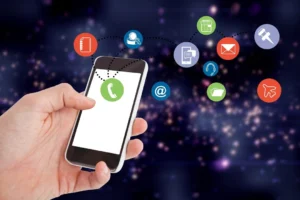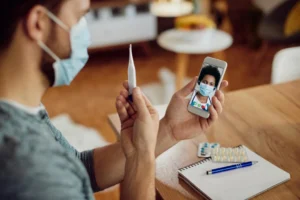In recent years, healthcare has embraced digital tools that simplify communication between patients and providers. Among these, WhatsApp has emerged as a key player. With over two billion users globally, it’s no wonder healthcare institutions are adopting WhatsApp Business API to improve patient services.
The platform provides a versatile communication channel, allowing doctors, clinics, and hospitals to connect with patients more effectively. But why is WhatsApp so effective in healthcare?
Let’s look at how this widely-used app is helping healthcare institutions improve patient engagement and care delivery.
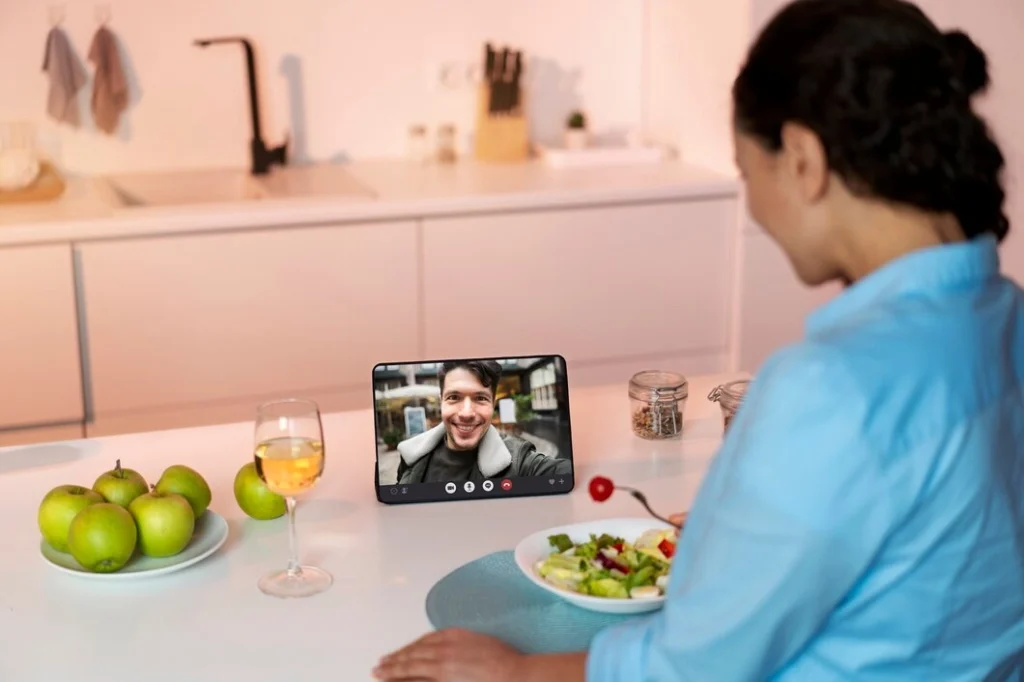
Key WhatsApp Use Cases in Healthcare
let’s dive into the specific benefits of WhatsApp use cases in healthcare:
1. Appointment Scheduling and Reminders
Missed appointments are a common issue in healthcare, often due to patients forgetting or not receiving timely reminders. WhatsApp offers an effective solution by allowing providers to send automated appointment reminders directly to patients’ phones.
This feature helps reduce no-shows and increases the overall efficiency of healthcare facilities. The two-way messaging capability also enables patients to easily confirm or reschedule appointments without lengthy phone calls or emails.
As a result, both patient satisfaction and healthcare resource optimization improve, making appointment management smoother and more streamlined.
2. Medication and Treatment Adherence
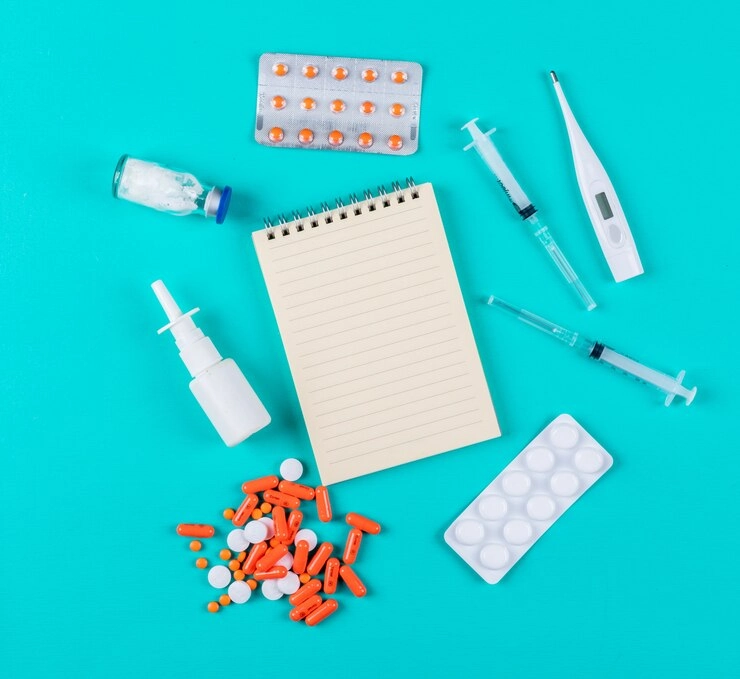
For patients dealing with chronic conditions or post-surgery recovery, following prescribed treatment plans is essential. However, it’s common for patients to forget to take medications, especially when managing multiple prescriptions.
WhatsApp helps solve this by sending regular medication reminders to patients. This service not only ensures better adherence to treatment plans but also opens up a communication channel for patients to ask questions or report side effects.
By staying connected, healthcare providers can monitor patient progress more closely and address any concerns before they become significant issues, improving overall treatment outcomes.
3. Test Results and Medical Updates
Patients often experience stress while waiting for test results. Traditional methods involve waiting for phone calls or in-person visits, which can lead to unnecessary delays. With WhatsApp, healthcare providers can send test results directly to patients in real time.
The app’s secure, encrypted messaging ensures that sensitive health information is shared safely. Moreover, the platform allows for immediate follow-up, enabling healthcare professionals to address patient concerns right away.
By reducing wait times and ensuring timely communication, WhatsApp significantly upgrades the patient experience in receiving important medical updates.
4. Remote Consultations via Telemedicine
Telemedicine has seen a surge in popularity, particularly during the COVID-19 pandemic, and WhatsApp is playing a key role in facilitating remote consultations. Doctors can use the app for video calls or messages to provide medical advice without requiring patients to visit in person.
This is especially beneficial for individuals in remote locations or those with mobility issues. WhatsApp allows healthcare professionals to monitor patient symptoms, provide advice, and even prescribe medication, all from the convenience of a smartphone.
It’s a practical solution that provides access to care while reducing the burden on healthcare facilities.
5. Sharing Health Awareness and Preventive Tips
Preventive care is a critical part of healthcare, and WhatsApp serves as an excellent tool for distributing health awareness messages. Healthcare providers can send updates on disease prevention, vaccination schedules, or seasonal health advice directly to patients.
This ensures that individuals stay informed and can take proactive measures to maintain their health. For instance, during flu season, clinics could send reminders about flu shots, or during public health emergencies like COVID-19.
They could distribute guidelines on hygiene practices. By keeping patients informed, WhatsApp helps promote better public health and strengthens the trust between patients and their healthcare providers.
WhatsApp Chatbots: Enhancing Patient Interaction
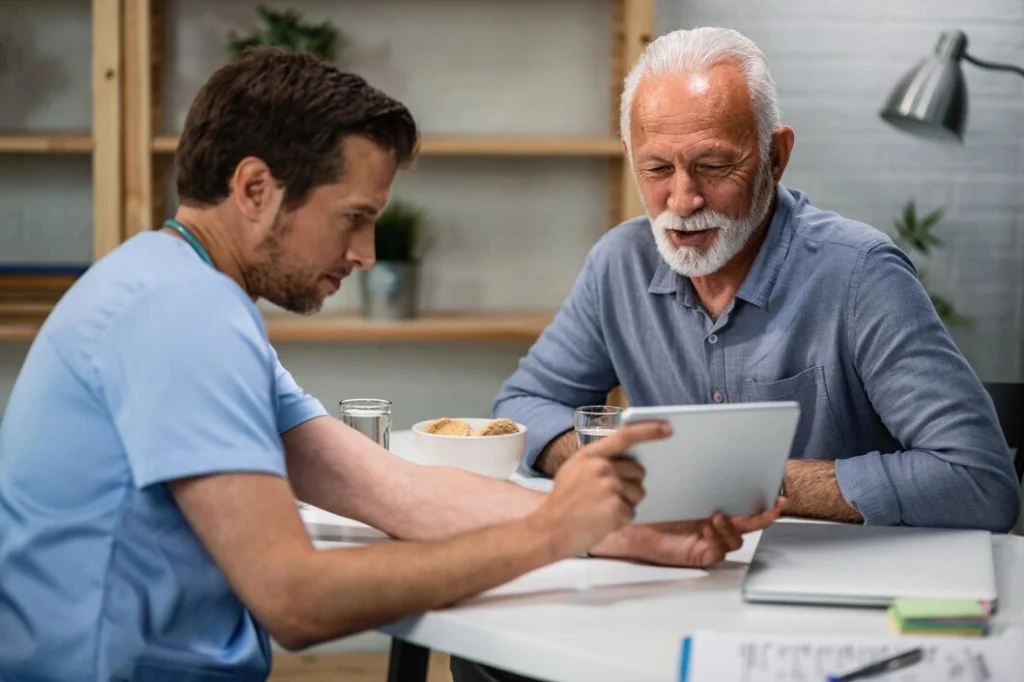
WhatsApp chatbots are becoming increasingly valuable in healthcare, providing round-the-clock support to patients. These automated systems can handle common inquiries, provide basic health information, and help patients book appointments. Chatbots improve the efficiency of healthcare services by answering frequently asked questions and guiding patients through various processes.
For instance, if a patient is unsure about clinic hours or required documents for a visit, a chatbot can instantly provide the needed information. By offering automated support, chatbots reduce the workload on healthcare staff and shorten the response times, improving patient satisfaction.
1. Automated Support and Triage
One of the most beneficial uses of WhatsApp chatbots is providing instant responses to common queries. Patients often ask questions that don’t require immediate medical attention, such as inquiries about clinic hours or appointment procedures.
Chatbots can offer instant answers, allowing healthcare staff to focus on more critical tasks. Additionally, chatbots can assist in triaging patients by asking about symptoms and providing recommendations.
This automated triage helps direct patients to the appropriate level of care, whether it’s a home remedy or a doctor’s visit. By providing timely responses, chatbots help streamline healthcare services.
2. Mental Health Support
Mental health is an essential aspect of overall well-being, and WhatsApp chatbots can offer much-needed support in this area. Patients seeking mental health advice can communicate with trained chatbots for basic guidance or connect with licensed professionals.
Privacy makes it easier for patients to seek help, especially those who may be hesitant to visit a clinic in person. Chatbots can provide coping strategies and relaxation techniques, or direct individuals to more comprehensive mental health services when necessary. This accessible, private platform helps bridge the gap for those in need of mental health support.
3. Collecting Patient Feedback
Patient feedback is essential for healthcare providers looking to improve their services. WhatsApp chatbots can send post-appointment surveys to patients, allowing them to rate their experience and offer suggestions for improvement.
This feedback provides valuable insights into patient satisfaction and helps healthcare providers identify areas for improvement. Since WhatsApp is a familiar platform for many, patients are more likely to respond promptly to feedback requests.
Quick responses ensure that feedback is gathered while the experience is still fresh, making it a powerful tool for improving healthcare quality.
Emergency Response and Coordination

In emergencies, communication is often the most critical factor. WhatsApp’s group chat and real-time update features make it an excellent tool for coordinating emergency responses. Hospitals and medical teams can use the app to share updates, allocate resources, and coordinate care during emergencies like natural disasters or public health crises.
Real-time communication ensures that medical teams are always informed and can respond quickly to evolving situations. WhatsApp’s simplicity and accessibility allow for fast mobilization, helping healthcare providers offer timely care when it matters most.
1. Real-Time Updates for Emergency Teams
In high-pressure scenarios such as mass casualty events or public health emergencies, medical teams need to stay in constant communication. WhatsApp’s group chat function allows healthcare professionals to collaborate, share updates, and provide real-time instructions.
Whether it’s coordinating ambulance dispatches or updating team members on resource availability, WhatsApp keeps everyone connected and informed. This ability to share real-time updates is crucial for ensuring that medical teams can respond effectively to emergencies, reducing delays in care and improving patient outcomes in urgent situations.
2. Coordinating Emergency Medical Responses
During emergencies, coordination is key, and WhatsApp makes it easy for medical teams to stay organized. Hospitals can use the platform to manage ambulance dispatches and ensure that patients receive the urgent care they need.
WhatsApp can also be used to communicate directly with patients during crises, providing real-time updates about hospital availability or instructions for seeking immediate care. By keeping both medical teams and patients informed, WhatsApp plays a vital role in improving emergency response times and ensuring that resources are used effectively.
Data Security and Privacy Concerns

While WhatsApp offers numerous advantages for healthcare communication, data security and privacy remain top priorities. Sharing sensitive health information requires strict privacy measures, and WhatsApp’s end-to-end encryption helps ensure that patient data remains confidential.
Healthcare providers must also comply with privacy regulations, such as HIPAA, to protect patient information. By taking extra precautions, including obtaining patient consent and securely storing communications, healthcare institutions can use WhatsApp safely and effectively while maintaining the highest standards of data protection.
1. End-to-End Encryption
WhatsApp’s end-to-end encryption ensures that only the sender and recipient can access messages, even WhatsApp itself cannot read them. This level of encryption is critical for healthcare providers who need to communicate sensitive information, such as test results or medical advice.
By securing these communications, WhatsApp helps healthcare providers maintain patient confidentiality and comply with privacy regulations. Encryption offers peace of mind for both patients and providers, knowing that their conversations are protected from unauthorized access, further enhancing trust in digital healthcare communication.
2. Patient Consent and Data Storage
In addition to encryption, healthcare providers must ensure they have proper consent before using WhatsApp for patient communication. Obtaining patient consent is crucial to comply with privacy regulations such as HIPAA.
Providers should also have protocols in place for securely storing WhatsApp communications, integrating them with patient management systems where necessary. This ensures that all records are maintained appropriately and can be accessed when needed.
By taking these additional steps, healthcare providers can use WhatsApp responsibly, offering the benefits of real-time communication without compromising patient privacy.
Collaboration Among Healthcare Providers
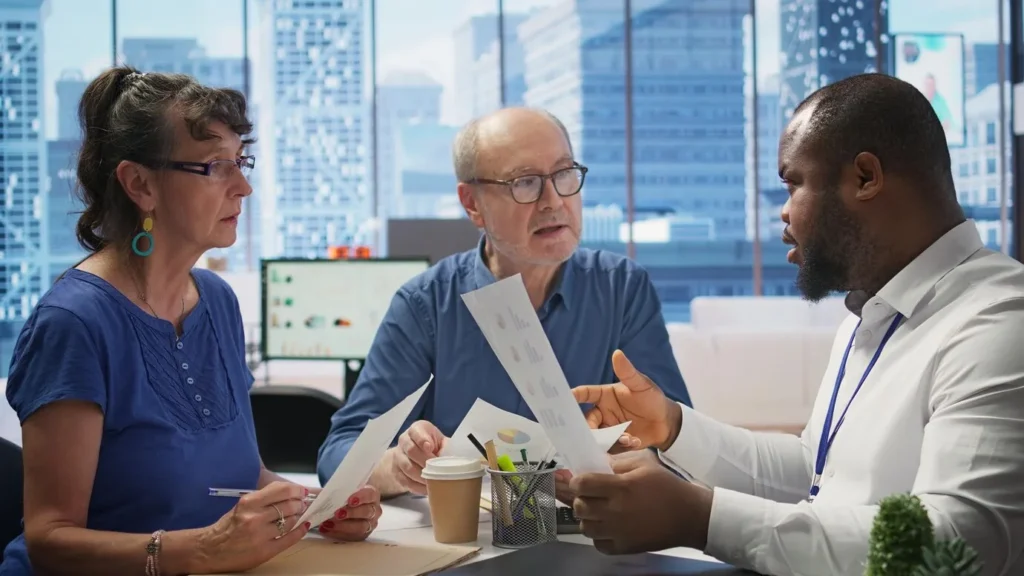
WhatsApp isn’t only useful for patient communication—it also helps healthcare providers collaborate more effectively. Many hospitals and clinics use WhatsApp to facilitate communication between doctors, nurses, and specialists, ensuring that everyone involved in patient care stays informed.
Whether it’s discussing complex cases, sharing research, or coordinating treatment plans, WhatsApp enables healthcare professionals to collaborate quickly and efficiently, fostering a team-based approach to patient care.
1. Group Chats for Medical Teams
Medical teams often need to collaborate on complex cases that require input from multiple specialists. WhatsApp’s group chat function allows these teams to communicate quickly and effectively, sharing updates, discussing treatment plans, and coordinating patient care.
This type of real-time collaboration is essential in modern healthcare, where multidisciplinary approaches are often required to provide the best possible outcomes for patients. WhatsApp’s simplicity and reliability make it an ideal platform for these crucial conversations, helping medical teams work together seamlessly.
2. Medical Research and Knowledge Sharing
In addition to facilitating communication between healthcare providers, WhatsApp also enables knowledge sharing and research collaboration. Doctors and specialists can use the app to discuss challenging cases, share the latest research, and stay updated on medical advancements.
This instant communication fosters a culture of continuous learning and improvement, helping healthcare providers stay at the forefront of their fields. By enabling quick, secure exchanges of information, WhatsApp plays a vital role in advancing medical research and improving patient care.
Enhancing Patient Trust Through Seamless Communication
Beyond its practical applications, WhatsApp plays a vital role in fostering stronger relationships between healthcare providers and their patients. By offering a direct and reliable communication channel, patients feel more connected to their healthcare team, knowing they can reach out with concerns or receive updates in real-time.
This ease of access builds trust and transparency, two critical components in the patient-provider relationship. When patients feel that their healthcare provider is approachable and responsive, it not only improves their experience but also encourages better adherence to treatments and follow-up care, ultimately leading to improved health outcomes.
The Future of WhatsApp in Healthcare
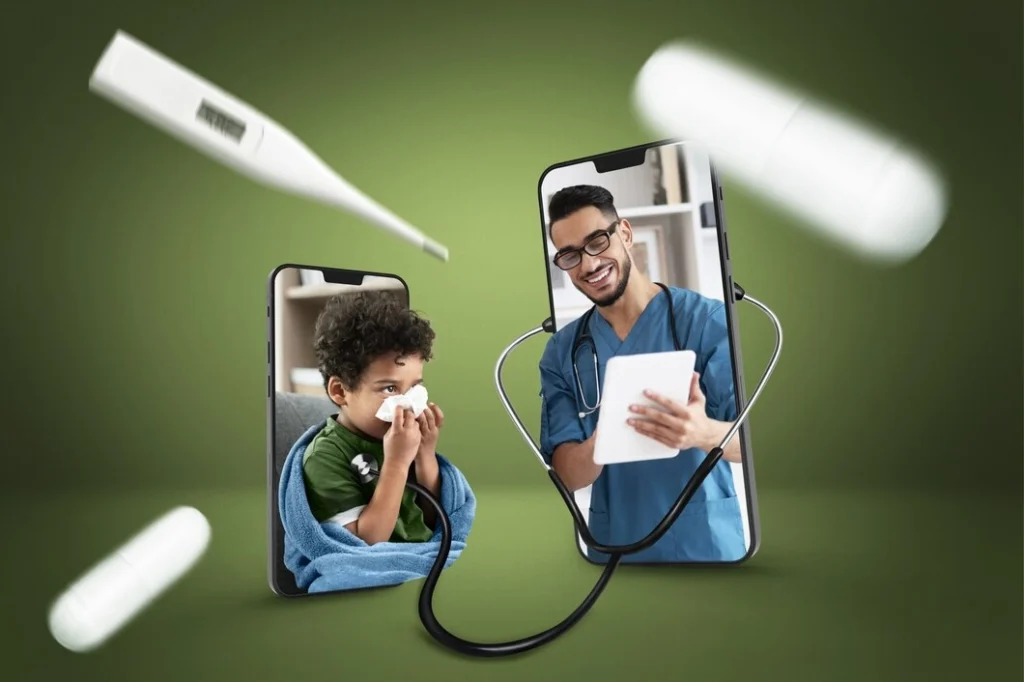
As technology continues to advance, WhatsApp’s role in healthcare is expected to grow. AI-powered tools, improved data storage solutions, and faster communication networks will further provide WhatsApp’s usefulness in healthcare settings.
By adopting this platform, healthcare providers can offer more efficient and accessible care to their patients, whether it’s for appointment scheduling, test result delivery, or remote consultations.
WhatsApp is transforming how healthcare providers connect with their patients, making healthcare communication more seamless and effective than ever before.

